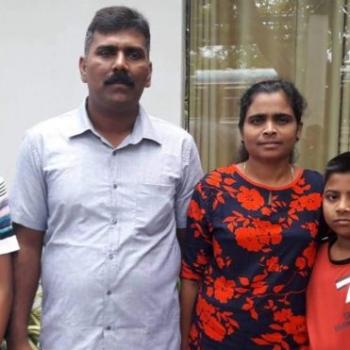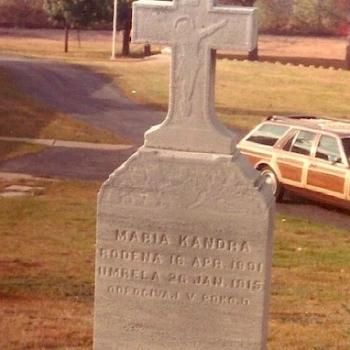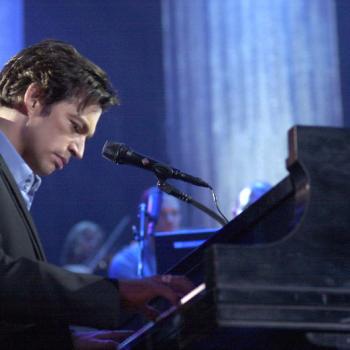We hear it again and again this time of year:
“I can’t believe it’s almost Christmas.”
It actually started before Thanksgiving. You’d hear staff here in the rectory saying, “I can’t believe it’s almost Advent.” And here we are, four weeks later. Where did the time go?
It seems like it gets shorter every year. We see it coming for months, but we’re never prepared for it. And there is never enough time for planning, shopping, mailing, decorating, baking—it may be that we are too busy and the days are too short and the obligations too many.
Take Christmas cards. Just when you thought you’d sent out all your cards, here comes one in the mail from someone you hadn’t heard from in 10 years, and you feel you have to send one back. You feel guilty if you don’t. It gets harder to get ahead and keep up. All that frenzy leads to this moment—just hours away from commemorating a singular and overwhelming event in human history—and all we can say is:
“I can’t believe it’s almost Christmas.”
But this Sunday, the gospel tells us, something else. It tells us: believe.
Believe it is almost Christmas—and believe in something wondrous.
We are on the cusp of a miracle.
Believe.
In Luke’s gospel, we hear again the story of an angel and a frightened girl in Nazareth who is reassured with these simple words: “Do not be afraid.”
In those four words, some of us may hear echoes of our own doubts, our own anxieties and uncertainties. We hear consolation in a time of worry, hope in an age of despair.
And we are told: believe.
Among other things, this passage from Luke contains the first words spoken by Mary in the gospels. The words of the first disciple could be the question posed by any disciple:
“How can this be?”
How can this be?
The answer, of course: it can be because of God, because “nothing is impossible with God.”
The larger message here, to Mary and to all of us, is that we need to leave room for God to do his work. We need to be faithful to his will, to allow the Holy Spirit to enter in, to let ourselves be his instruments, to be (as Mother Theresa once put it) “a pencil in God’s hand.”
We need to learn to respond like Mary: “May it be done to me according to your word.”
Which means we need to believe.
It isn’t easy. We live in a mistrustful time. And we live in a time when we like to think we have control over almost everything, even the seasons. The other day, the New York Times had an essay about how we have forgotten the value of the Winter Solstice, the event we mark tonight, when we have the shortest day and the longest night. We have obliterated the solstice with electric lights and sound and distractions; day and night are almost the same.
But centuries ago, our ancestors lived differently. They lived with the night. They didn’t try to get rid of it. They embraced it. It was a time for telling stories, for intimacy, for prayer, for trusting in God to get them through to another morning.
With technology, we’ve lost that sense of mystery and awe. We only believe what we can see. And we keep the lights on all the time so we can see.
But we forget that our human vision is so limited. And God’s is so much greater.
These last days of Advent challenge us to see something more, to see beyond what is obvious.
Because while nothing is impossible with God, very often nothing is obvious with God, either.
Who would have thought a virgin in an obscure village would become God’s dwelling place?
Who would have thought God would enter human history as a baby in a stable in a forgotten corner of a small country?
Who would have thought one woman saying “Yes” to an angel would change everything?
In these final hours of Advent, there are so many things to do. Yes, a lot of us can’t believe it’s almost Christmas.
But take time in the next few days to believe this:
Believe, as Mary did, in possibility.
Believe in God’s overwhelming love.
Believe in giving that love to others, as the ultimate Christmas gift.
Believe that Christ’s birth changed everything—and that it continues to change everything.
Believe that it is our call to carry that change into the world, especially to the poor and the outcast and the forgotten.
Like Mary, we so often find ourselves asking, “How can this be?”
This gospel today gives us the answer. During this sacred time of year, it summons us to believe the unbelievable—and for one simple reason, one we so easily forget:
Because nothing is impossible with God.












